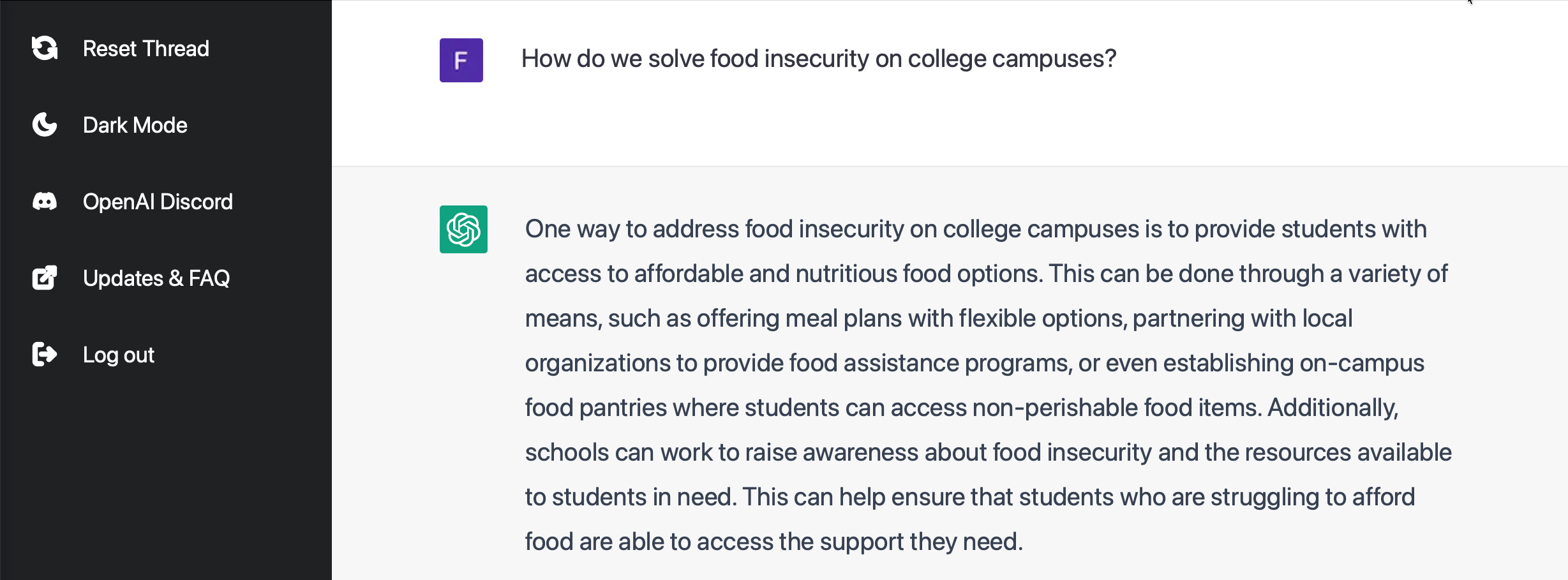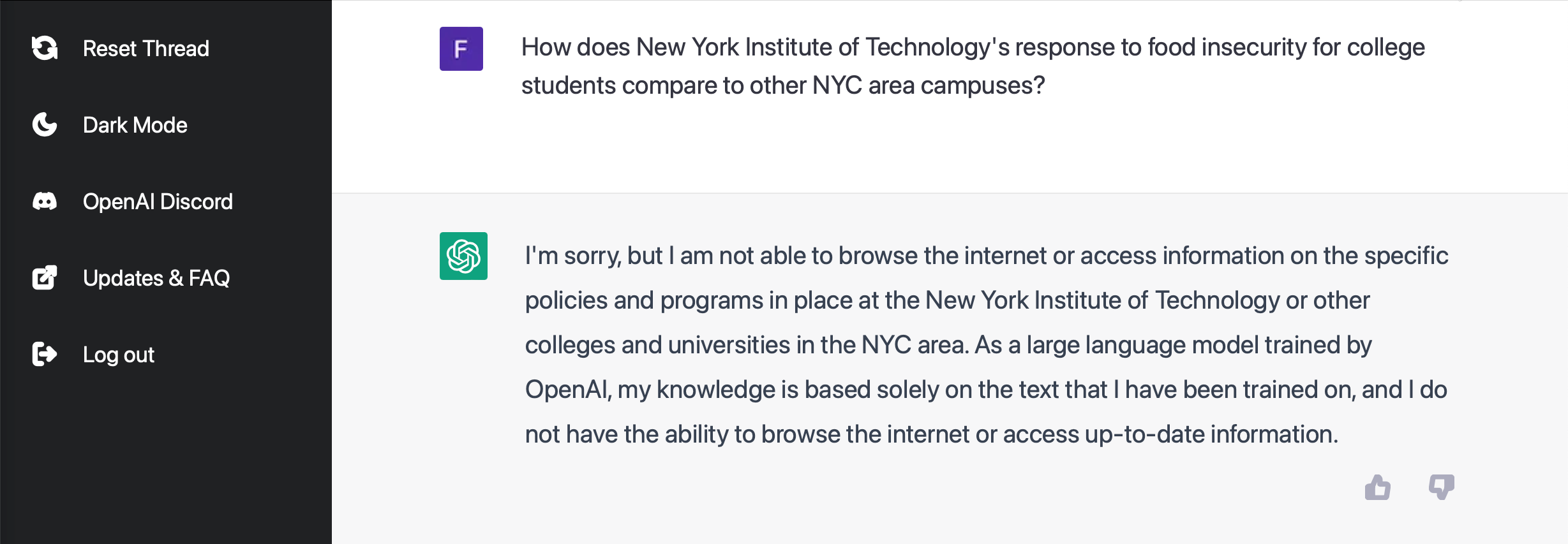Think Globally, Write Locally: A Response to ChatGPT to Foster Student Engagement and Belonging
This semester at New York Tech, we have witnessed two significant developments: a new Office of Diversity, Equity, Inclusion & Belonging and the release of ChatGPT, game-changing AI writing assistive technology that has resulted in headlines such as “The College Essay Is Dead.”
How do these two developments connect?
They encourage us to invite students into the community by providing opportunities to engage with local problems and knowledge. We can meet this challenge with authentic assessment that requires higher order thinking, such as synthesis, evaluation, reflection, and application to real world contexts. This approach also values the experience students bring to the classroom, another significant component of inclusive learning.
To illustrate, I gave ChatGPT the type of prompt that may show up in first-year writing classes. The response below would provide a solid framework for the average college essay, but one that students can also complete with information readily available on the internet. If AI can respond well to a prompt, we have to ask ourselves how valuable this broad approach really is to college-level learning.

|
Then I asked ChatGPT a question about local conditions that exist within our own New York Tech community. The response below indicates the limits of AI innovation and the opportunity for students to develop a sense of belonging by researching, understanding, and sharing the implications of key problems for people in their daily lives.

|
Our Center for Teaching and Learning has reminded us before about the power of authentic assessment. We will need our creativity and ability to apply the principles of authentic assessment to meet the challenge. Navin Pokala, Associate Professor of Biological and Chemical Sciences, clarifies here: “Text generating programs have been available for years (for example, the Postmodern Generator). However, the sheer power and flexibility of ChatGPT combined with the simplicity of the interface dramatically increases the challenges of ensuring academic integrity of take-home assignments.”
Below are some resources and tips that address this moment. Ultimately, it will be exciting to explore how we can seize this chance to make our assessments more meaningful to students and to foster a sense of belonging to the New York Tech community.
Jonathan Goldman, Professor of Humanities and writing faculty member, offers a suggested assignment prompt that incorporates the AI technology with a valuable metacognitive process: “Read the prompt and brainstorm how you would answer in an essay. Feed the prompt to an AI text generator. Read the resulting essay and find specific places where you disagree with the way it answers the question. Write an essay critiquing the AI-generated essay. (Optional: have the AI text generator create an essay that critiques the essay created in (2), then critique that. And so on.)”
Fran Glazer posed a couple of ways these strategies might work in other disciplines: An architecture course might give students the plans for a specific structure and ask them to propose ways to make it more sustainable. A lab course might ask students to analyze the results of their own experiments and propose avenues of future study. And a marketing class might have students critique a marketing plan created by the AI text generator.
Amanda Golden, Associate Professor of Humanities and Writing Center Coordinator, recommends Emory professor and digital humanities expert Lauren Klein’s response: “There’s always been this concern that technologies will do away with what people do best, and the reality is that people have had to learn how to use these technologies to enhance what they do best.”
Resources:
|
Contributor:
Jennifer Griffiths, Ph.D.
Professor, Humanities
Director of Writing
New York Institute of Technology
jgriff02@nyit.edu
By continuing to use the website, you consent to analytics tracking per NYIT's Privacy Statement